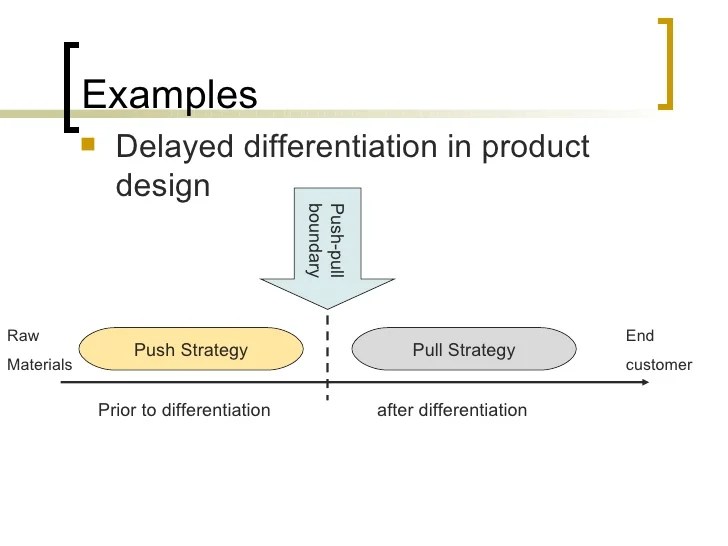Delayed differentiation and modular design are tactics for mass customization that enable businesses to offer a wide range of customized products while maintaining production efficiency. This approach involves delaying the differentiation of products until late in the production process, allowing for greater flexibility and responsiveness to customer demand.
Modular design, on the other hand, involves breaking down products into smaller, interchangeable components, enabling easy customization and assembly.
The combination of delayed differentiation and modular design empowers businesses to meet the growing demand for personalized products without sacrificing economies of scale. By understanding the benefits and challenges of these tactics, businesses can effectively implement them to gain a competitive advantage in the mass customization market.
Delayed Differentiation and Modular Design for Mass Customization: Delayed Differentiation And Modular Design Are Tactics For Mass Customization

Mass customization empowers consumers to personalize products and services according to their unique preferences. Delayed differentiation and modular design are key tactics that enable manufacturers to achieve mass customization while maintaining efficiency and cost-effectiveness.
Delayed Differentiation
Delayed differentiation involves postponing the final customization of a product until late in the production process. This allows manufacturers to produce standardized components that can be assembled into different configurations to meet customer demands.
Benefits of Delayed Differentiation
- Reduced inventory costs
- Increased flexibility to meet changing customer needs
- Improved efficiency in production
Challenges of Delayed Differentiation
- Potential for production delays
- Need for specialized equipment and processes
- Difficulty in forecasting demand for specific configurations
Examples of Industries Using Delayed Differentiation
- Automotive industry
- Computer industry
- Furniture industry
Modular Design
Modular design involves creating products from interchangeable components or modules. This allows manufacturers to offer a wide range of customization options without having to produce entirely different products.
Advantages of Modular Design
- Increased flexibility and customization
- Reduced production costs
- Improved product quality and reliability
Disadvantages of Modular Design
- Potential for increased complexity
- Difficulty in ensuring compatibility between modules
- Need for specialized design and engineering skills
Best Practices for Modular Design
- Define clear module interfaces and specifications
- Use standardized components and modules
- Test and validate module compatibility
Customization Options
Delayed differentiation and modular design enable a wide range of customization options, including:
- Product features and functionality
- Materials and finishes
- Color and design
- Personalized branding and packaging
These options allow customers to create products that are tailored to their specific needs and preferences.
Examples of Successful Mass Customization Campaigns
- Nike’s NikeiD program
- Dell’s Build-Your-Own program
- Harley-Davidson’s Custom Vehicle Operations
Challenges and Considerations, Delayed differentiation and modular design are tactics for mass customization
Implementing delayed differentiation and modular design for mass customization presents several challenges:
- Managing complexity and ensuring product quality
- Balancing customization with efficiency and cost-effectiveness
- Training and supporting a skilled workforce
Overcoming these challenges requires careful planning, investment in technology, and a commitment to continuous improvement.
Case Studies of Successful Implementation
- Lenovo’s ThinkPad Customization Program
- IKEA’s modular furniture system
- Tesla’s electric vehicle platform
Future Trends
Emerging trends in delayed differentiation and modular design include:
- Increased use of digital technologies for customization
- Development of more flexible and adaptable manufacturing systems
- Growing emphasis on sustainability and personalization
These trends will shape the future of mass customization, empowering consumers with even greater control over the products and services they purchase.
Clarifying Questions
What are the key benefits of delayed differentiation?
Delayed differentiation allows for greater flexibility in meeting customer demand, reduced inventory costs, and improved production efficiency.
How does modular design contribute to mass customization?
Modular design enables easy customization and assembly of products, allowing businesses to offer a wide range of options without increasing production complexity.
What are some challenges associated with implementing delayed differentiation and modular design?
Challenges include managing product complexity, ensuring supply chain flexibility, and overcoming potential cost implications.

